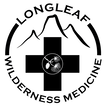Course basics
Course Structure: Hybrid model with 8 hours of online pre-work followed by two in-person class days
Certifications: Wilderness First Responder, CPR for Adults and Children, Epinephrine Auto-Injector Administration
Certification Length: 2 years
Industry Information: LWM's Wilderness First Responder certification is nationally recognized, meets the American Camp Association 2012 Standards and is an accepted provider of the Boy Scouts of America.
Certifications: Wilderness First Responder, CPR for Adults and Children, Epinephrine Auto-Injector Administration
Certification Length: 2 years
Industry Information: LWM's Wilderness First Responder certification is nationally recognized, meets the American Camp Association 2012 Standards and is an accepted provider of the Boy Scouts of America.
Why Recert
Wilderness First Responder certifications expire because over time skills get rusty and the medical information we worked hard to learn gets harder and harder to recall in emergencies. Taking a Wilderness First Responder Recertification course gives participants the ability to refresh skills and learn the most up-to-date, evidence based information in the field of wilderness medicine.
Recertification with LWM
The needs of all students are different. Our recert classes are intentionally kept small in order to be able to focus on answering questions, talking through real life scenarios, reviewing and practicing skills, and running through a variety of scenarios. Participants can expect to walk away with an increased confidence in their WFR-level skills, as well as information about the most up-to-date medical practices.
What topics are covered?
Topics include a review of LWM's patient assessment system, how to provide long-term care with limited resources, the decision of when to call for more help, and treatments such as splinting, wound care and management of spine injuries. The class does include a CPR/AED for Adults and Children certification.
The course schedule includes pre-course independent study, classroom time, as well as extensive hands-on skills practice through medical scenarios and labs. There will be a written test for both CPR and WFR materials.
The course schedule includes pre-course independent study, classroom time, as well as extensive hands-on skills practice through medical scenarios and labs. There will be a written test for both CPR and WFR materials.
Certification information
Successful completion is based on attendance, participation, demonstration of skill competence, and a written exam. Participants who meet completion requirements will receive the following certifications:
LWM Wilderness First Responder certifications are valid for two years, followed by a one year grace period where the certification is no longer valid but recertification can still be completed through a WFR Recert course.
- Wilderness First Responder
- CPR and AED for Adults and Children
- Epinephrine Auto-Injector Administration
LWM Wilderness First Responder certifications are valid for two years, followed by a one year grace period where the certification is no longer valid but recertification can still be completed through a WFR Recert course.
How should I prepare?
Prior to the start of class, students will receive a pre-course assessment from LWM. An ungraded, scenario-based assessment that will be reviewed on the first day of class, this pre-course exercise allows participants to identify the places where they need the most review. As an additional resource, LWM maintains an assortment of case studies for students to review on the website.
Other review methods that have helped students prepare prior to recertification:
Upon registering, students taking a the LWM WFR Recert class have the option of receiving the LWM Wilderness First Responder book used in the course mailed prior to the start of the class.
Other review methods that have helped students prepare prior to recertification:
- Reviewing flash cards and other study materials from previous classes
- Reviewing treatment and evacuation guidelines for a variety of injuries and illnesses
- Consider injury and illness progressions and differentiators - for example, how can a responder identify the transition of compensated to decompensated shock? How can a responder discern the difference between mild and severe head injuries?
- Complete one of the LWM case studies and fill out a complete SOAP note for the patient identified
Upon registering, students taking a the LWM WFR Recert class have the option of receiving the LWM Wilderness First Responder book used in the course mailed prior to the start of the class.
Prerequisites
- A current Wilderness First Responder certificate or one that is within the previous certifying organization's grace period.
- Individuals seeking re-certification for their WFR must present proof of current certification or a certification within the previous provider's grace period no later than the first day of the course. A WFR certificate will not be issued to individuals without proof of current certification or who have a certification which has expired.
- WEMTs seeking recertification of the wilderness portion of their certification must present current EMT and WFR certifications at the start of the course.
Additional information
- LWM accepts certifications from any wilderness medicine organization that offers a WFR course that is at least 70 hours in length.
- Current WEMTs can recertify the wilderness portion of their certificate by taking a WFR Recertification course.
- LWM's certification is nationally recognized and, with training officer approval, can be used for NREMT continuing education.
- Fellowship of the Academy of Wilderness Medicine (FAWM) credits are available after participation in the WFR Recert course.

